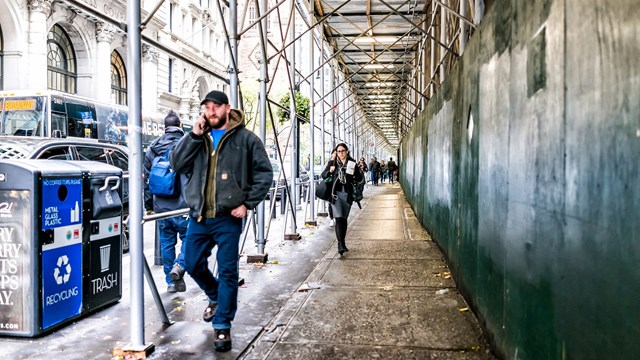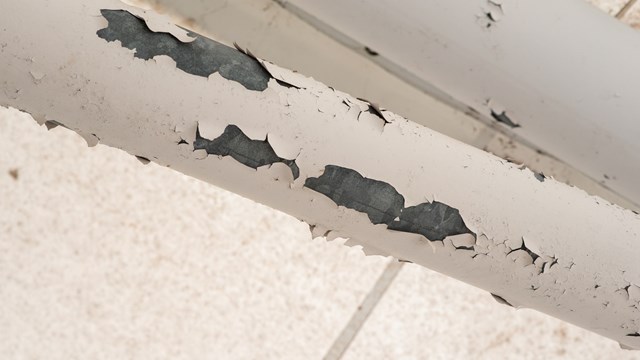
While we were toiling away at our respective law schools and then studying endlessly for the bar examination, we never expected to be confronted with the wide range of issues that our cooperative and condominium board clients have approached us with over the years.
When we were law students, we always thought that depravity, suicides, veiled threats, vandalism and public sexual encounters were situations handled either by the New York City Police Department, New York Post investigative reporters or scriptwriters for Law & Order. However, we now know that if you practice cooperative and condominium law long enough, you may become involved in the most sordid situations. In our experience, in order to counsel boards of New York City cooperatives and condominiums effectively, one has to be part attorney, part therapist and part law enforcement agent.
Below are three true stories of, shall we dare say, "bizarre" situations that our cooperative and condominium board clients have involved us in. Please note that no names or building addresses are mentioned in order to protect the innocent (and our clients' property values).
Objectionable Conduct
If you think you have a nightmare neighbor in your building, just imagine if these people lived on your floor:
Our firm was asked to assist a cooperative board in permanently removing a problematic shareholder from the building based on his "objectionable conduct." While we were initiallyinformed that the shareholder was disturbing the peaceful enjoyment of the building's residents and compromising the safety of the building's residents and staff, we were later shocked to learn the full extent of the shareholder's nefarious activities in the building.
For instance, the shareholder was repeatedly obstructing the building's hallways with various items of personal property, allowing loud and disturbing noises to emanate from his apartment for prolonged periods of time during late evening hours, using the building's hallways to paint his furniture, stopping up his shower drain with hypodermic needles, stealing clothing from the building's laundry room and propping open side entrances to the building. And, if that wasn't bad enough, the shareholder was later caught engaging in sexual intercourse with a homeless person in the shower of the building's gym!
While a majority of the shareholder's conduct was difficult to discuss in court without blushing, our firm persevered by successfully evicting him for engaging in objectionable conduct. We also made new law along the way (this building only required a vote of the board—not the shareholders—to terminate a proprietary lease).
In another building, a cooperative's board of directors asked us to counsel them concerning the adult son of a shareholder who was mentally ill and was bothering residents with the following "objectionable conduct:"
He clogged his shower drain and toilet on numerous occasions, causing floods in the apartments below; started a fire in his apartment while cooking pasta over an open fire of burning cardboard; attempted to enter several neighboring apartments forcibly; threw newspapers smeared with his own waste from his apartment windows onto the street below; spontaneously ranted, raved and swore in and around the building; wandered the building nude or partially nude; and walked around his apartment completely naked, with his front door wide open.
Here, we successfully led the board through the process of terminating the shareholder's proprietary lease due to "objectionable conduct." While this matter was complicated by the age and mental health of the shareholder's son, the son was ultimately removed from the building.
Threats Close to Home
In another unusual situation, we were approached by a condominium board that was evaluating whether it should exercise its right of first refusal against the purchase of an apartment in their high-end, Upper East Side building. The prospective purchaser of the unit had been convicted of several violent felonies in several different states, and the board was concerned about allowing this individual to become part of the building's elegant and placid environment.
To better evaluate any risk, which may have been posed by the proposed purchaser, the board requested additional information from him concerning the nature and severity of his convictions. In response, the purchaser wrote a rambling and graphic account describing his felony convictions, which included convictions for battering two ex-wives and a former employer.
To bring matters closer to home for our firm, the purchaser's response also blatantly emphasized that he knew the names of the spouses of the board's attorneys (possibly through his own wife who was also an attorney) and strongly suggested that "problems" could arise from any attempts—by anyone involved—to muddle his purchase. After wiping the sweat off of our brows, we worked with the board and successfully prevented the purchase from taking place by having certain bylaw amendments passed. Thankfully, no one heard from this purchaser again.
These strange scenarios are but the tip of the iceberg of problems that many boards of cooperative and condominium apartment buildings—affluent or not—constantly face. Stories about embezzlement, kickbacks, payoffs, suicide attempts and dishonest condominium and cooperative plan sponsors, among other topics, will appear in articles to come.
When you are a cooperative and condominium attorney in New York you simply cannot be faint-of-heart. While it is said that there are 10,000 stories in the naked city, it certainly seems to us that many of them take place in the buildings of our cooperative and condominium clients.
Jeffrey S. Reich, Esq. and Steven D. Sladkus, Esq. are attorneys at Wolf Haldenstein Adler Freeman & Herz LLP on Madison Avenue in New York City.






Comments
Leave a Comment